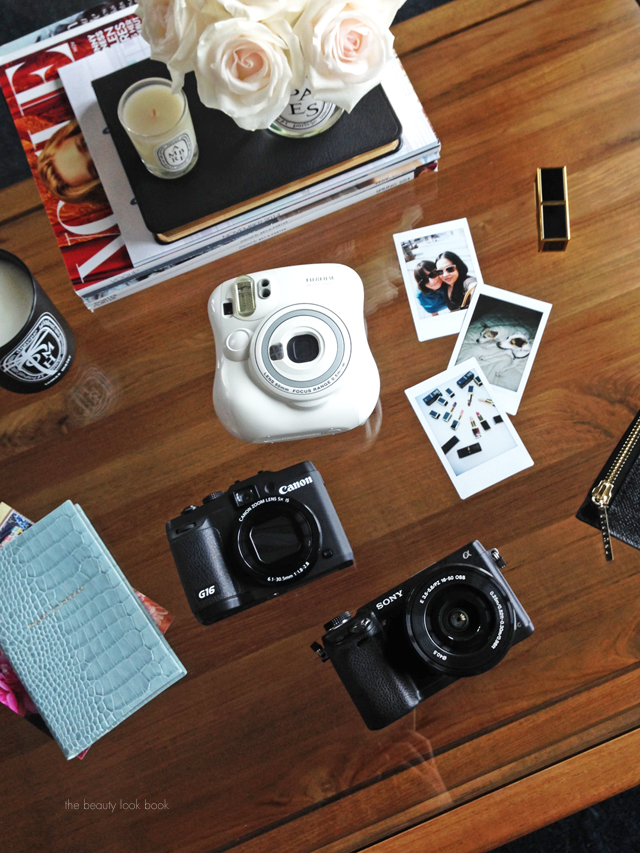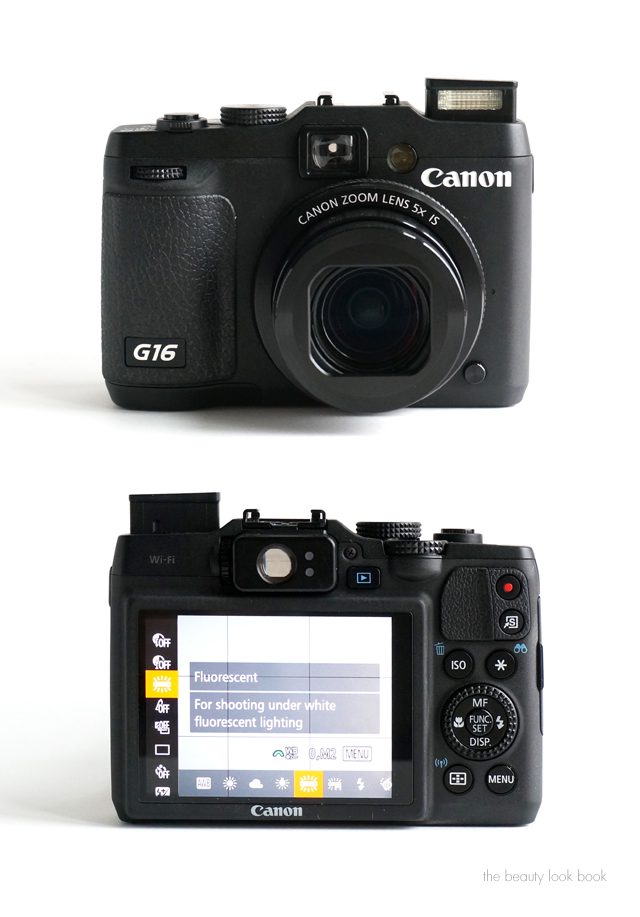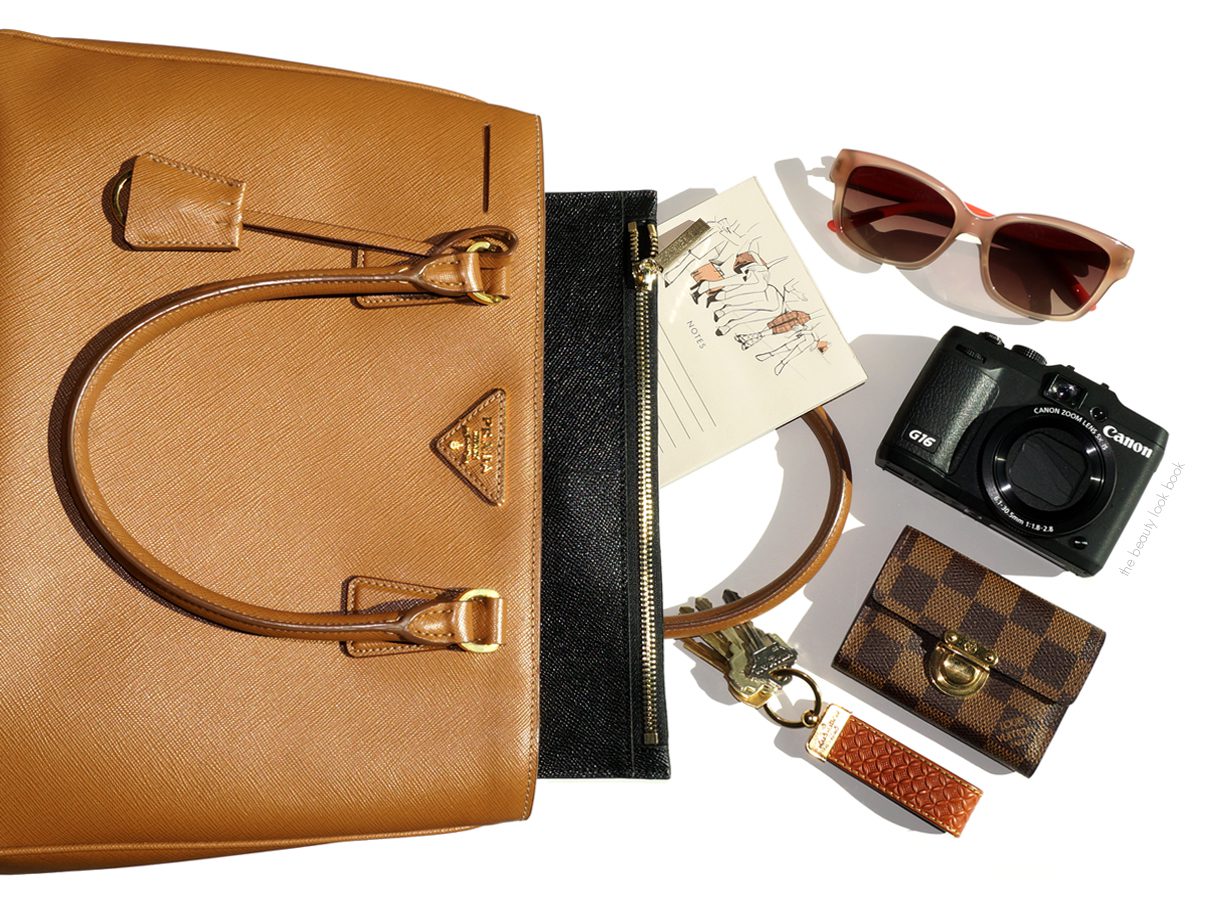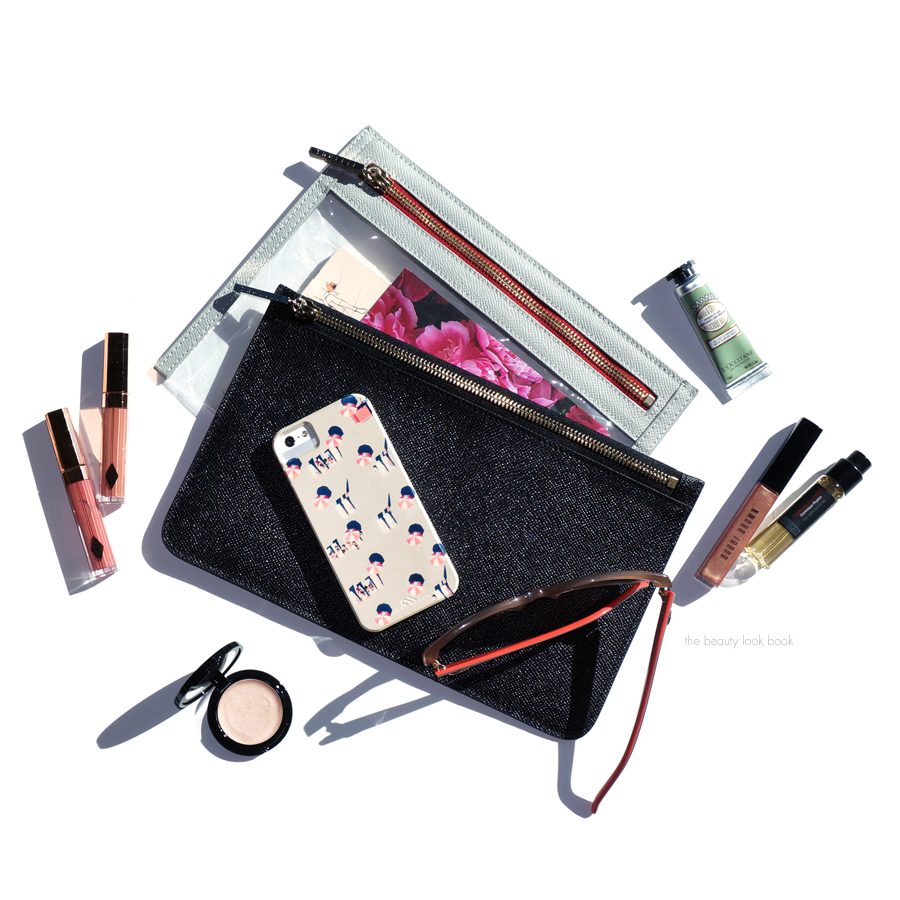The most frequently asked questions I receive these days are about my photos, lighting setup and cameras. I’ve tested a couple that I’ve fallen in love with but haven’t tried a wide variety of cameras or brands so I don’t know that I can tell you what’s the best on the market or offer comparisons. The vast majority of the photos on this blog are taken by me, my photography techniques are a self-taught work in progress. I’ve been blogging for a little over five years – and I’m still learning new things every week. Today I’ll be sharing the cameras I use, but as many photographers will tell you, buying a certain camera won’t automatically translate into good or perfect photos. Mine certainly aren’t perfect by any means, but I do practice a lot and play with angles and lighting. Sometimes blog posts are photographed over the course of several days. While this isn’t the most efficient way to blog or photograph products, it’s my current method and works for me.
For me, the biggest challenge in photographing beauty products is capturing colors accurately. In addition, details like complex shimmers, reflections on lacquered compacts or patent finish packaging, glare from metallic packaging, and different texture are all things you need to work on in order to photograph things well. Many products are prone show finger print smudges so having a small cloth towel or paper towel handy is good to clean up any areas to make them look their best.
Bottom line for me is that when it comes to cameras right now, I’ve looked for affordable easy to use cameras that give you high quality photos but that won’t break the bank. I like ones that are easy to carry with me for on-the-go or travel. There are a lot of other good blog posts on higher end cameras, this one highlights what I use and like.
_________________________________
On lighting: I would say about 95% of my photos are taken with natural light or direct sunlight. Having good light is key but you still need to deal with things like glare, light intensities and reflections. For additional light, I’ve experimented with a few bulbs but haven’t found anything I love yet. Knowing how to use your camera exposure and scene settings will make all the difference. If you’re a camera novice like me, I highly recommend this book Better Photo Basics by Jim Moitke. I bought it earlier this year and it helped me a lot as a simple and easy to understand guide.
On cameras: I’ll highlight three cameras I use for the blog along with another fun one I’ve featured several times in posts.
_________________________________
Camera 1: iPhone
I’ve used my iPhone for a number of blog photos. For product or styled shots, lighting isn’t always ideal so I like to use the Afterlight app to adjust brightness, contrast and highlighting. Getting a perfect square shot isn’t always easy with a hand-held phone (at least not for me) so I like the cropping tool too. Many of the photos in this post were taken with an iPhone camera. Photos can be hit and miss depending on lighting. With the iPhone camera you just don’t have as much control. Examples of more photos taken with the iPhone here, here, here and here. (Photo above is also taken with an iPhone.)
photo above taken with Canon G16
_________________________________
Camera 2: Sony NEX-6
I purchased the Sony NEX-6 early last year. I’ve always been a fan of Sony cameras for their compact sleek design and high quality photos. I purchased the NEX-6 shortly after it came out at around $800 but today the prices of cameras have become more affordable as new models are introduced. With Sony cameras, you can purchase the body and lenses separately to suit your needs. I bought the standard bundle that came with the 16-50mm Power Zoom Lens and have been very happy with it.
I like the focus features on this camera and the color correction features. It works really well with the flash, especially for swatches and product photos. I’m particularly fond of the electronic view finder too which is helpful if you’re in bright sun. The only thing I wish it had was a flip-out screen. The digital screen tilts which makes it easier to get weird angles or if you need to take aerial shots, but I do wish it would flip out completely.
A few examples of blog posts featuring photos taken with this camera include: this one, this one (with the help of my brother), and this one.
Since new models of cameras are being introduced constantly, note that you might not be able to find this one easily in stores anymore. I was told that the NEX family is being phased out and that the Alpha A6000 models have replaced the NEX series. Reviews report that this one is an upgrade to the NEX-6 but still extremely affordable. My curiosity wants to run and buy one of the Alpha models because I love Sony cameras so much, but I’m saving up for my next camera which is going to either be another Canon or Nikon.
above photos taken with Sony NEX-6
_________________________________
Camera 3: Canon G16
The Canon G16 is the second camera I’ve purchased for myself. The bulb in my Sony burst earlier this year and I had to send it in for several weeks to get it replaced. I couldn’t be without a camera for more than a few days so looked for a quick replacement. I did a lot of research online, I read a lot of reviews and watched quite a few videos on YouTube. I also asked for recommendations from my brother who knows a lot about photography and cameras. I told him I was looking for something that was under $1,000, compact, easy to use but with very good quality. He said hands down check out anything from Canon G series and I ordered the G16 from Amazon. It was under $500 (before tax) and it arrived at my house in two days. It was love at first shoot.
After playing with this for a few months I can say that I am very impressed with this tiny little camera. This works very well without the flash and allows you full control of lighting and exposure settings. It has similar functions and features to the Sony, but the Canon does have more options to adjust for daylight, clouds, fluorescent lighting etc. The only downside for me so far is that it tends to darken my skin significantly when photographing swatches with a flash. Taking swatch photos with a flash needs a lot more work depending on what the natural light situation is.
I don’t do beauty videos, but I did do a test shoot with this camera at my last home. I was testing foundation colors and had a different shade on each side of my face. I wanted to see how it looked in different lighting so I filmed myself for about six minutes walking around the house holding the camera in hand. I was very impressed with the color, quality and the way the film turned out very steady. I expected it to be wobbly from all the movement but the camera automatically smoothed everything beautifully. I didn’t have any special lighting but the camera captured the light very well and adjusted as I walked into different areas of our home.
More blog posts with the Canon G16 camera here, here and here. Aside from swatch photographing challenges, I’m absolutely in love with this camera. You can get really sharp photos and the settings allow for full control of your exposure settings.
above photos taken with Sony NEX-6
_________________________________
Camera 4: Fujifilm Instax Mini 25
I’ve featured this fun instant-print camera several times. It’s a compact camera that prints credit-card photos in polaroid style. There are several different brands that offer multiple models of instant print cameras. After researching online reviews, I picked the Instax 25 (I paid around $89 on Amazon for this one). If you want a slightly different model or one of the fun colors, opt for the Instax 8 (also available at J.Crew and Urban Outfitters). This post here outlines the differences between the Fujifilm models.
There is a learning curve with the Fujifilm. Photos won’t be perfect right off the bat. I would recommend purchasing extra film because each cartridge only gives you 10 photos. There is an automatic flash which you can’t turn off so it’s best to take photos in natural sunlight, although at night the flash is pretty good. Photos are best when taken from a distance, they will be blurry if you take close ups. For me, this one is mainly for fun people photos – it’s fun if you want to snap some in-the-moment photos or candids. Unfortunately my friends love this so much that I end up giving away most of my prints.
The quality isn’t the best, but I do think it’s pretty good given the price and size. To get better photos, you will need to look into larger cameras which I’ve found to be bulky.
above photo taken with Canon G16
_________________________________
If you’re in the market for a new camera and looking for some good introductory cameras that are affordable and not too bulky, but want good quality images, I’d recommend either the Sony or Canon. Both are very good brands that have good reviews all across the board. They are easy to use and are a lot of fun to play with. In terms of camera shopping, each of the brands mentioned above are available at multiple retailers. I’d recommend doing research online first. YouTube is a phenomenal tool. There are so many camera experts and fanatics who have put different models and brands to the test.
Quick recap of cameras featured:
- Sony NEX-6, available at Amazon (very limited quantities left), replaced by the Alpha A6000 at Amazon, Best Buy and Sony
- Canon G16, available at Amazon, Canon, Best Buy
- Fujifilm Instax25, available at Amazon, Instax 8 available at J.Crew and Urban Outfitters
I hope you found this camera roundup guide helpful!











